Two months ago I thought I knew what Open Source meant, but it turns out that I didn’t know the half of it. Since then my new show Open SourceCraft has published eight episodes and is now available to watch online or by subscribing to the audio or video feed. In these interviews, I’ve learned how open source has enabled people to get jobs, built communities, and created new business models. Here are some of the trends that have emerged.
Jobs by Open Source
In my very first interview on the subject, David Khourshid explained how his open source projects led two companies to find him and offer him great jobs, one of which was with Microsoft. David attributes this not only to his code, but also his published educational articles and his work on CodePen. In my show & tell with David, he shows us how he created Alex the beautiful Reactive CSS Huskey, and how he’s used his popular react-redux-form library to create complex forms now in production at two companies.
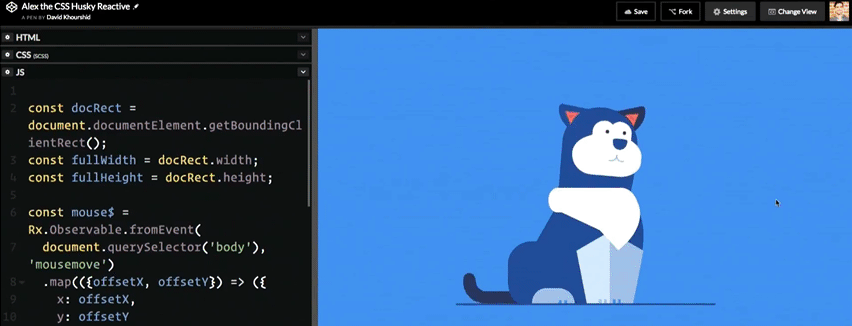
Ian Thomas, my second interview really wanted to become an Android developer and it almost didn’t happen. A few years ago he found himself confronted in a job interview about not having any Android experience. After calling up his Github account and showing off all his Android open source projects they hired him on the spot.
What I find fascinating is that neither of these stories would be possible without existing open source code (React Redux & Android). Open source provides a breeding ground for creative people to build more open source, and do so in a way that helps them open doors. Having popular open source projects that big groups of people use also means that anyone can become a teacher, which led me to my next observation.
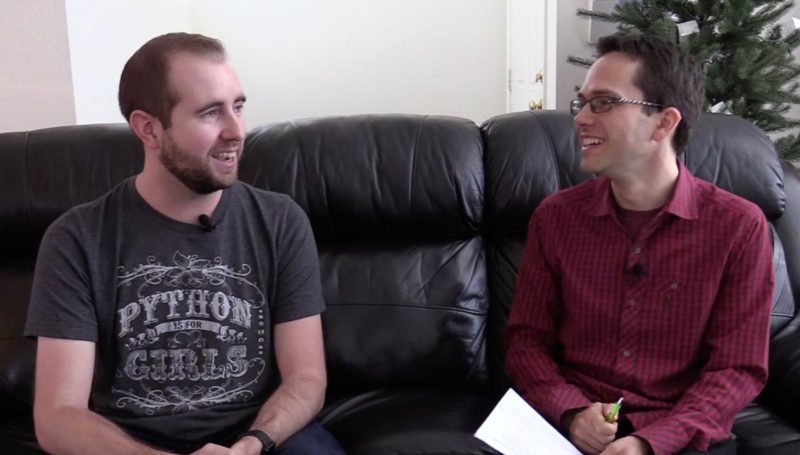
Interview with Trey Hunner
Teachers by Open Source
Open source enabled both Trey Hunner and Ben Sullins to become full-time teachers. Trey started as a Python freelancer but found enjoyment helping run free Python workshops in the San Diego developer community. From that work a local company paid him to run an internal workshop, and that gave him the push he needed to become a teacher full-time at his company truthful technology.
Ben Sullins enjoys creating video courses online teaching open source, which he’s done for both Lynda & Pluralsight. Both companies provide a platform for selling content, and he gets paid royalties when people watch it. Recently Ben decided to take his love for data and combine it with pop culture to create a popular YouTube channel, Teslanomics.
Company by Open Source
The interview with Bill Weinberg, a Senior Director at the Linux Foundation, kinda blew my mind. Bill helps companies be more successful by implementing Open Source as a business model. If properly executed, big companies can potentially save millions of dollars in the long term and help drive innovation within their company.
'Open source is a methodology for getting work done.' -Bill WeinbergClick To TweetMatt Burgess, on the other hand is a developer who’s been lucky enough to spend the last 4 years working on open source as his full-time gig. The last two years he’s been working at Hortonworks, which focuses on the development and support of the Apache Hadoop and its associated projects. You might then wonder, if Hortonworks core technology is all open source and free, how do they make money? The answer is that they sell software support, training, and consulting for companies who need to implement big data projects using Hadoop, which happens to have the most adorable logo.

Community by Open Source
Open source is more than just sharing code, it’s about community. It was fostering community which helped Paulus Schoutsen create one of the most popular home automation platforms on the Internet, Home Assistant. To him creating community not only means creating good documentation but also leveraging the best communication platforms like Gitter for chat and Discourse for message boards.
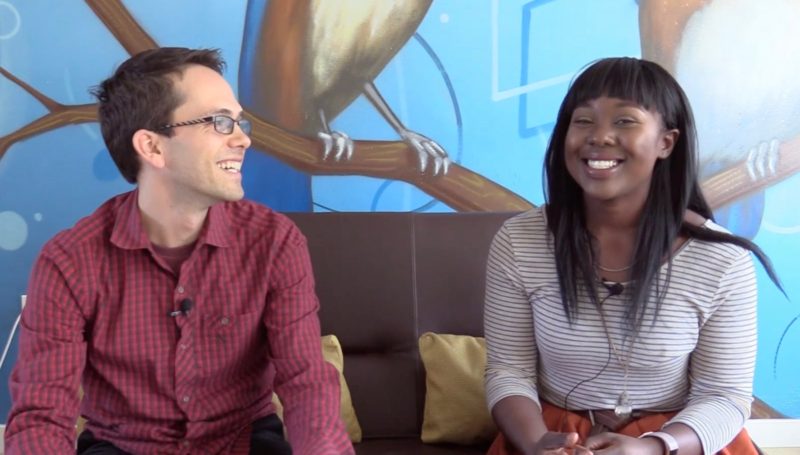
Last but certainly not least is someone who might not have become a coder without the in-person open source meetups, workshops, and conferences she was able to attend. I’m talking about Shana Moore, who was able to change careers to coding in less than two years and just got back from speaking at Rubyconf Australia. As she says:
'If you’re not uncomfortable you’re not growing, so embrace those challenges and discomforts.' -Shana MooreClick To TweetWith that attitude and open source driving your code and community, I think anything is possible.
Looking Forward
As I write this I’m in Chicago doing a few more interviews I’ll have up on Open SourceCraft in the coming weeks starting with Lorena Mesa this Wednesday, a political activist turned coder. If you want to be notified about upcoming episodes just hit that subscribe button over on the website.
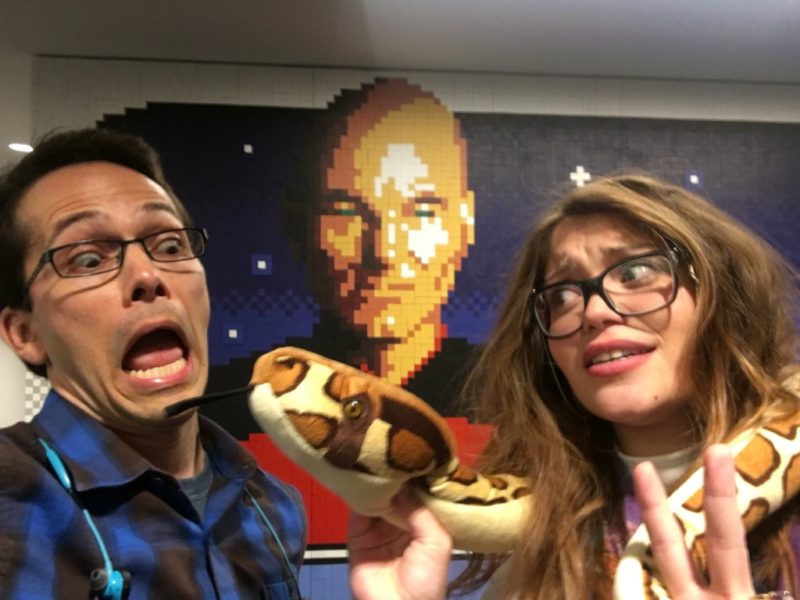
Lorena Mesa is a director at the Python Software Foundation, and she has a python to prove it. Captain Picard is not amused.
P.S. I plan to put together a conference talk or two which brings some of the most interesting parts of these interviews together. If you’d like me to come speak at your conference about it, feel free to drop me a line.



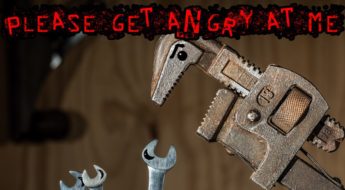

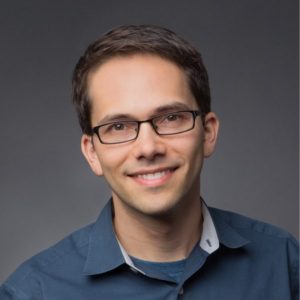
Leave a Comment